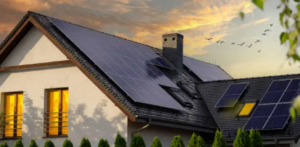Solar panel installers can receive their credentials by attending trade schools that offer training courses. Furthermore, taking classes at community colleges will enhance their PV design and system knowledge.
 Before installing your system, solar installers Adelaide companies must design it and secure permission from local utilities – which may take three to 11 weeks.
Before installing your system, solar installers Adelaide companies must design it and secure permission from local utilities – which may take three to 11 weeks.
Education and Training
Education and training requirements for solar installers Adelaide will depend on your region but will typically include classes covering system design fundament, photovoltaicsics (PVsandith safety instructions. Community colleges or vocational schools may also offer courses on using specific tools; some programs provide certificates upon completion of training programs.
Installers of solar panel systems must be adept with math as they may often be relied upon to perform energy calculations and other mathematical tasks. Furthermore, having some knowledge of electrical systems may come in handy should you need help wiring. Local, provincial and federal codes also play a factor; familiarity with them would certainly aid their work.
Successful careers in this field require many skills, from negotiating with clients and reading blueprints to filing paperwork with local authorities. Solar panel installers must submit plans detailing panels’ location and mounting configuration to building departments for approval before filing paperwork with local utilities to establish “net metering agreements,” establishing terms for electric rates post installation and compensation for excess electricity sold back into the grid.
Licenses and Certifications
Solar installers Adelaide must possess specific credentials to do their job successfully. Many states mandate licensing of contractors before installing systems on homes or commercial properties; the Interstate Renewable Energy Council provides a map detailing these regulations; some local jurisdictions may also have additional stipulations.
Qualifications for licensing vary by state but typically include some form of postsecondary education and on-the-job experience. Community colleges and vocational schools sometimes offer classes in solar panel installation – though a degree isn’t always necessary! You can also find training online that will provide the training required. If you already possess construction skills, these online courses may also speed up your transition into solar technician roles quicker.
Certification can set solar panel installers apart from their competition and is an effective way to differentiate themselves in job applications. Some companies even make employees mandatory to be certified, showing customers they uphold high standards when installing panels.
Work Environment
Solar photovoltaic (PV) installers work alongside other forms of renewable energy to assemble, install and maintain solar panels that convert sunlight into electricity. They utilise tools like drills and wrenches to connect panels to frames, wires and support structures and install electrical systems to bring that power directly into homes or businesses – often working outdoors, such as roofs, but occasionally also attics or crawlspaces.
Solar panel installers often gain skills through online training courses or programs at vocational schools and community colleges. Others enter the field through on-the-job training that may last as much as one year, with electricians and roofing apprentices often receiving PV system installation training as part of their apprenticeships; system manufacturers often offer installer training programs and overviews of specific products.
Job Duties
Solar panel installers, commonly called photovoltaic (PV) installers, assemble, set up and maintain rooftops or other systems that convert sunlight into energy. They may install new systems on support structures, connect them to electrical components, and inspect existing PV systems on roofs to ensure they function optimally.
As more people become conscious of their energy consumption and take steps to go green while saving money, solar PV installers are becoming more sought-after to meet this growing demand.
Strong attention to detail is paramount when working as a residential PV installer; one small mistake could result in electrocution or inefficient systems that won’t operate as intended. Interpersonal skills also come in handy since residential PV installers frequently work inside customers’ homes and must communicate their energy needs effectively to them. They must be able to assess site locations for the optimal placement of their equipment to obtain maximum sunlight while adhering to state and local laws related to solar energy use.